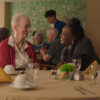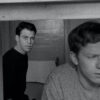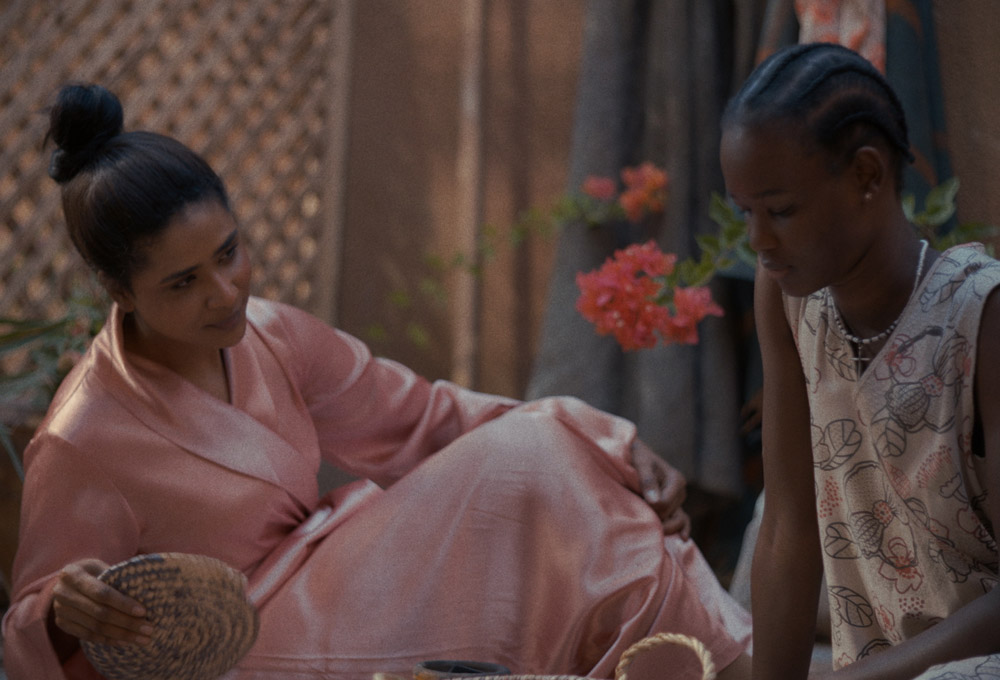Akram (Nazar Goma) can’t help but kick the ball around a bit with the five-year-old Danny when he sees him out in the driveway in his home of Khartoum in “Goodbye Julia,” though he’s made his objections about the boy and his mother Julia (Siren Riak) staying with them known to his wife Mona (Eiman Yousif), calling the dark-skinned Southerners savages and needing to be assured after Mona has hired Julia to be a live-in maid that they won’t be touching the same silverware. Still, the morning after saying such things, he’s playing a little soccer with the kid before heading to work, seemingly unconscious of how he dehumanized him the night before in private and connecting on a purely intuitive, human level when directly confronted with him.
In his moving feature debut, Mohamed Kordofani has to engineer a larger situation for these two worlds to collide in Sudan where in 2005 when “Goodbye Julia” begins, the end of a 21-year civil war could lead to the potential independence of the long-marginalized South when they’re promised by a peace treaty that they’ll get to vote on their secession in six years. Akram, who hardly looks like a radical, can be immediately shaken as the southerners living in Khartoum celebrate in the streets, setting a few bonfires in the process, and with tensions high, it is the worst timing imaginable for Mona to find herself in the middle of the conflict, accidentally hitting the young Danny with her car when driving around the camps where he lives with Julia and his father Santino, who gives chase when she tries to leave and in trying to start a conversation with her outside her home, he is killed without hesitation by Akram in what the latter believes is an act of self-defense.
When Julia is unaware of what’s transpired and Danny is too young to realize what’s happened, Kordofani is able to consider what relationships could be possible without all the baggage of Sudan’s tortured past as Mona’s guilt leads her to seek out Julia and offer her work and ultimately shelter, with Akram being none the wiser about the connection they share. Broken into two halves, with the other set in 2010 when South Sudan is at the cusp of controlling their own destiny, “Goodbye Julia” is able to chart liberation happening at a much more personal level as Julia and Mona find a friendship and Akram begins to see Danny as a son, which he’s harbored some small resentment for Mona never being able to provide him with. As delicately as the characters navigate these relationships that set aside deeply ingrained prejudices, the writer/director is equally subtle in noting the continually troublesome power dynamics at play when Julia remains an employee at the mercy of Mona and Akram and Mona, in spite of being in control of the wealth of her family thanks to an inheritance, still has to accede to her husband’s wishes in a patriarchal society.
One doesn’t need more than to see Julia sorting through coffins to attempt to gain closure on Santino’s whereabouts or Mona having to give up her career in music to know that they are hardly alone in suffering in silence, though surely they feel that way and “Goodbye Julia” is impressively able to convey so much with so little, not only from scene to scene but with a limited amount of characters and time as it speaks to a major revolution while acknowledging the equally big ones taking place inside each home in Khartoum as people decide on what they want the future to look like. Warmly filmed by “This is Not a Burial, It’s a Resurrection” cinematographer Pierre de Villiers, there’s a simple sophistication to every shot that alludes to the daily interactions that have a lot more going on than what’s on the surface and with a light touch, Kordofani is able to make something of considerable weight without ever feeling overbearing, allowing an experience of how burdensome history can be and the feeling of rejuvenation that can arrive when people can start to see past it and make decisions on their own intuition.
“Goodbye Julia” will screen again at the Chicago Film Festival on October 14th at Siskel Center, Screen 2 at 12:30 pm.




